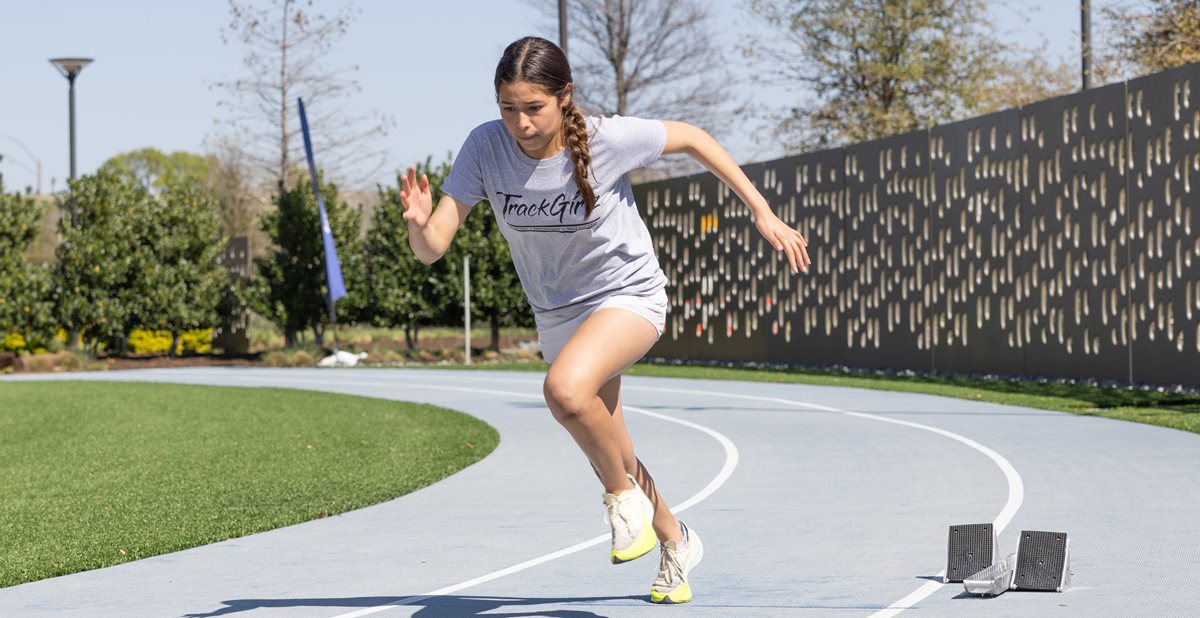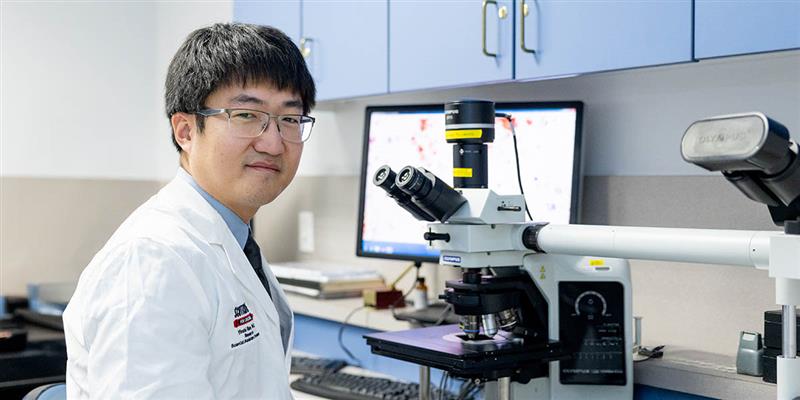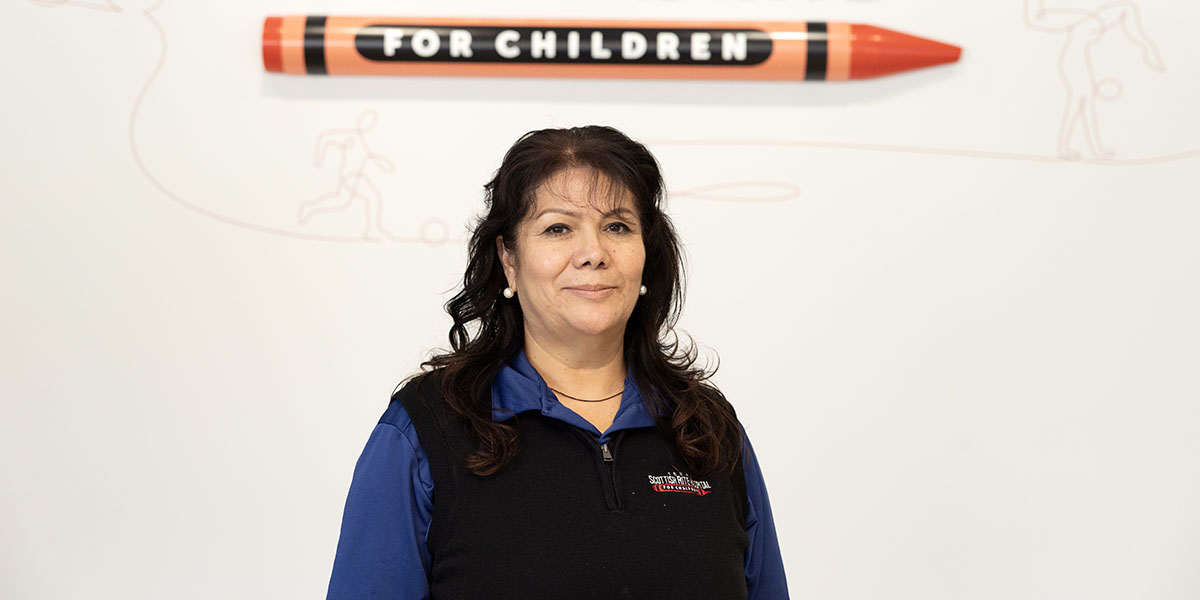Previously published in Rite Up, 2024 – Issue 2.
New and novel research that focuses on adolescent sprinters is coming off the blocks at Scottish Rite for Children Orthopedic and Sports Medicine Center in Frisco. FAST, short for Functional Analysis and Speed Training, is a series of data collection clinics led by Sophia Ulman, Ph.D., director of the Movement Science Laboratory. She and her team are partnering with Mechelle Lewis Freeman, USA Track and Field Olympian, Olympic coach and CEO/ Founder of TrackGirlz, a Frisco nonprofit that gives girls access to mentorship and sport through track and field empowerment programs.
The goal of FAST is to reduce the risk of injury in the adolescent sprinting population. To achieve this, Ulman’s team collects data that measures a sprinter’s mobility, stability, strength and power. “A lot of sprinting data in the research community is in collegiate or Olympic athletes,” Ulman says. “No one has really tapped into sprinting at the adolescent level.” Analyzing this data helps determine the mechanical weaknesses or deficiencies that young sprinters have, which could lead to injuries. Athletes receive their data on report cards that include recommended exercises, or correctives, which sprinters can do to improve their specific areas of weakness. By participating in FAST clinics, young sprinters learn how to move correctly so that they can improve their speed and reduce their risk of injuries.
On the inaugural day of FAST, Freeman brought middle and high school sprinters from TrackGirlz to participate in a variety of functional tests on the track and in the lab at Scottish Rite. A month prior, she completed the tests herself, providing Olympic-level counsel to help identify the appropriate sprinting metrics. “When watching the girls move, it was interesting to see how the data we measured correlated to what I observed with my eye,” Freeman says. “The data gives you confirmation on weaknesses that need to be addressed, removing the guesswork from their athletic development.”
Beyond movement, researchers surveyed participants on their nutrition habits, sleep routines and training hours. “We can relate mechanical issues and movement deficiencies to these factors as well, which provides a more holistic message,” Ulman says.
Once a large dataset is collected, the team aims to answer questions that will determine prevalence. “For example, 98% of sprinters have this mechanical deficiency or have a weakness in power that leads to this injury,” Ulman says. “These overarching data points are extremely helpful and will allow us to better target our interventions for these young athletes.”
Freeman punctuates the importance of TrackGirlz’ collaboration with Scottish Rite. “Through the expertise of the Movement Science team, we are giving these girls world-class information, education and motivation to perform their best.”














